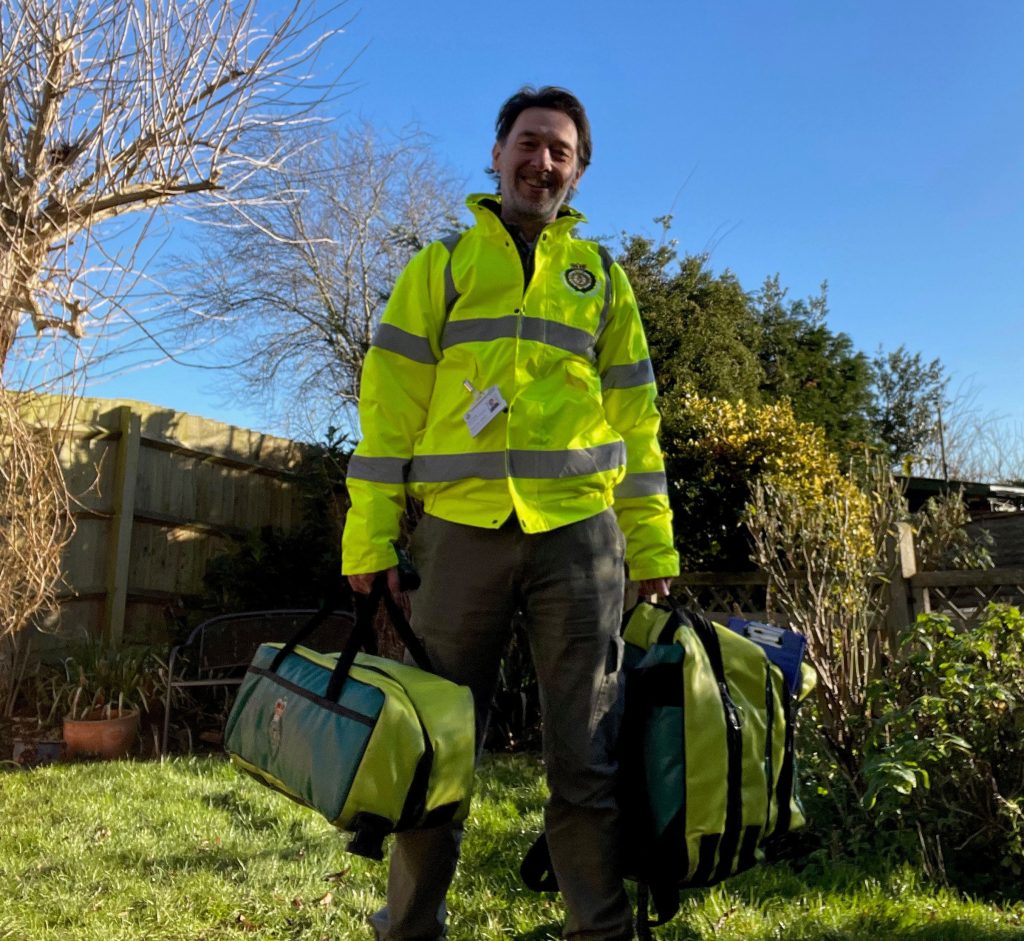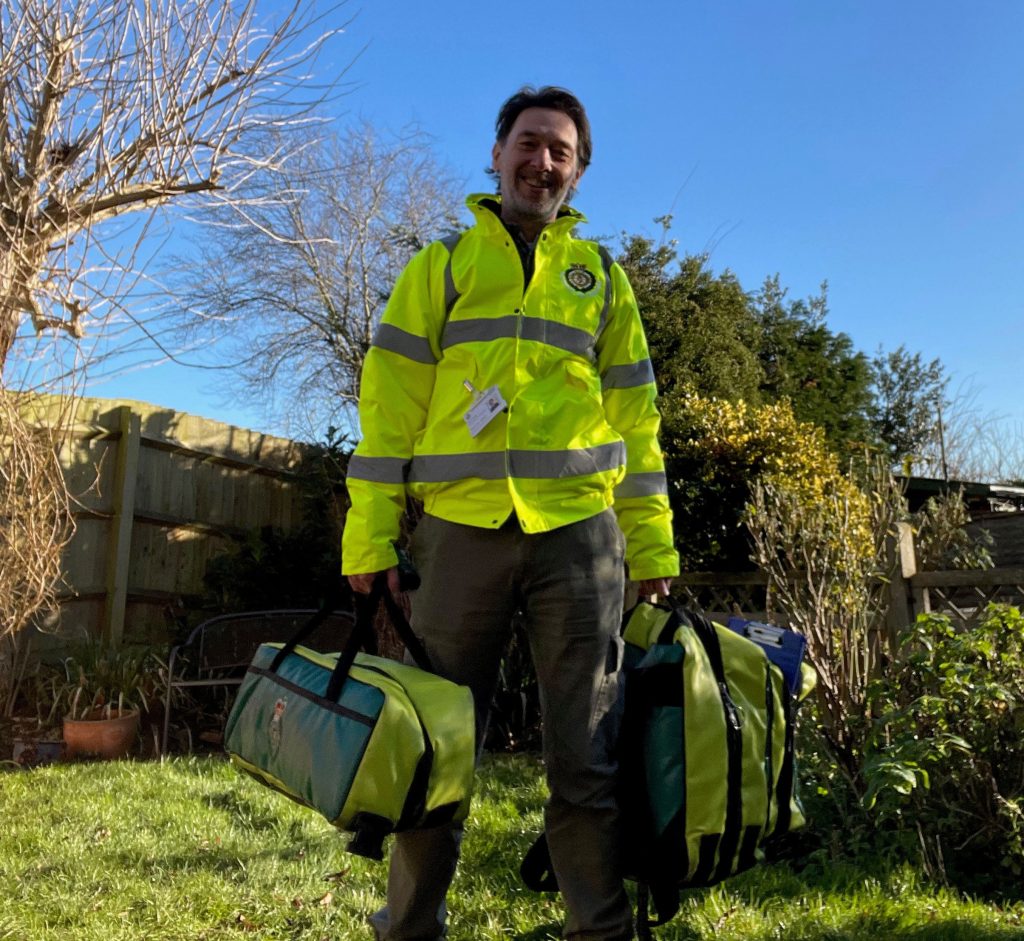Martyn Wady becomes a trained First Responder.
WFH has its benefits and being on hand to save a life has to be one of the best! Martyn Wady, Denman’s International Business Manager spends much of his time in his home office in rural Bedfordshire and took on the challenge of training to become one of Britain’s First Responders. Martyn says “I live in a rural village and even at the best of times it’s a challenge to get an ambulance here in under 8 minutes. In recent times with the pressure on the NHS, it’s even harder. The chances of surviving a cardiac arrest after four minutes reduce massively with every passing minute, so the sooner you can start CPR the better. I’m trained to use oxygen and a defibrillator too and I can get pretty much anywhere in my local area faster than an ambulance.”
Martyn undertook five full days of training and 25 hours of online learning and commits to further monthly training. He is ‘on call’ weekly and attends Category 1 and 2 emergencies (life in danger and possible life in danger) which can include anything from an elderly person taking a tumble to catastrophic bleeds and heart attacks. “Our role is to provide First Aid where needed and assess and monitor patients until the ambulance arrives. Often, we carry out the primary assessments and vital statistics which enables the ambulance crew to act fast and provide the necessary treatment when they do arrive. We are often first on the scene and with long ambulance wait times, we can be looking after a patient for hours, so a lot of what we do is monitoring and reassurance,” explains Martyn.

When on call Martyn must be ready to drop everything and go and ensures he has his kit prepped at all times. While the idea of being called to an emergency can be scary, Martyn admits that when it happens his training kicks in and he just follows procedure. Martyn concludes “It’s scary but you just have to remember your training and the fact that in pretty much every case you can’t make it worse. What you can do is buy the patient crucial time that might just save their life.”



